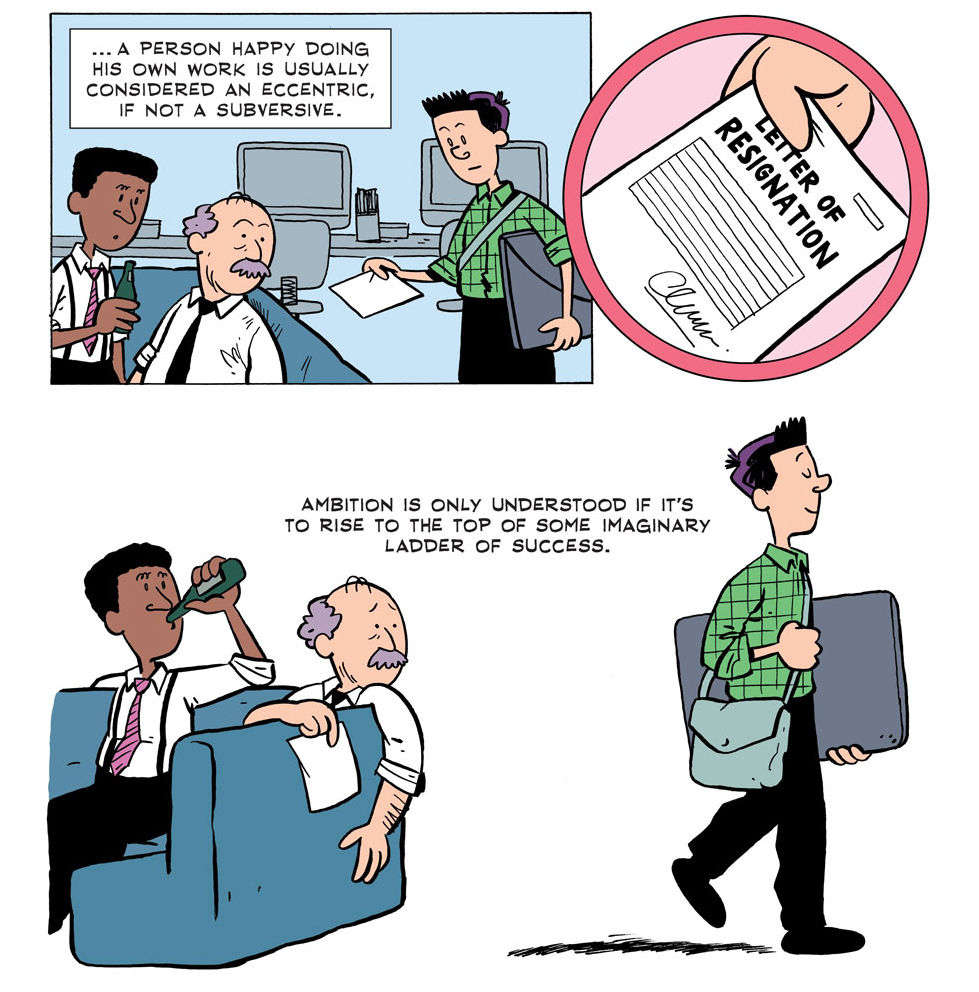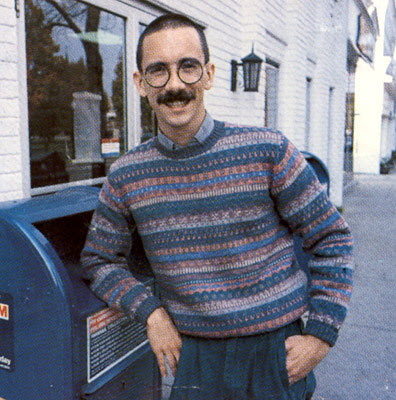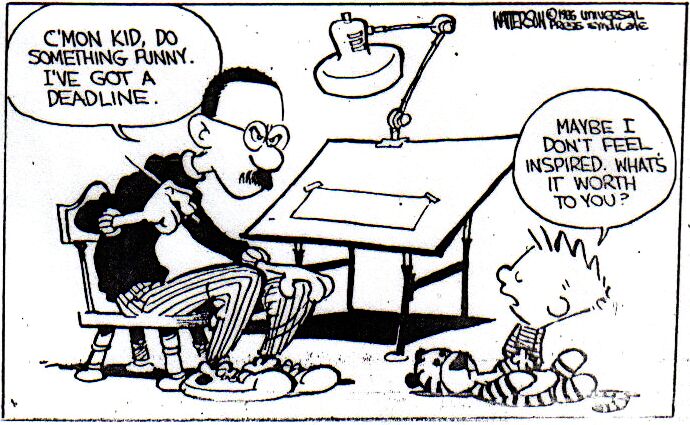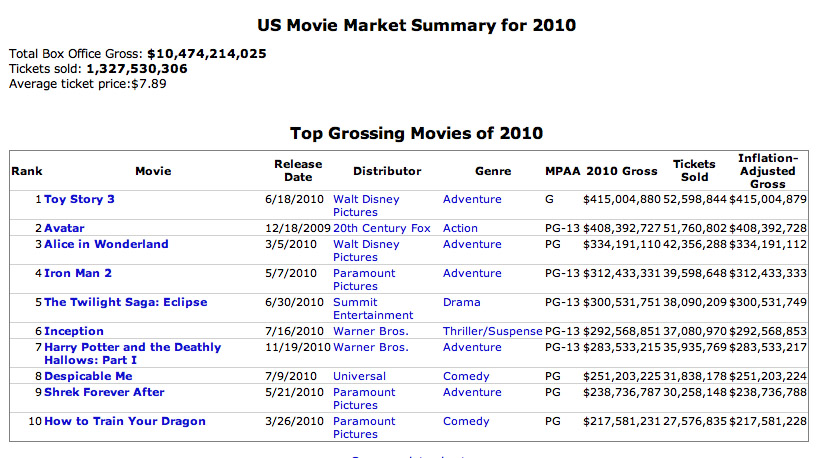In 1995 Calvin & Hobbes creator Bill Watterson gave the commencement address at Kenyon College and offered the graduates some advice: Forget traditional ideas of “success”, and follow your own passion. Watterson told the students that raising a family instead of pursuing a career was perfectly okay as was taking less pay to do something that makes you happy.
In the last few weeks a strip by Gavin Aung Than paying tribute to Bill’s speech became a popular item on the internet, one that many artists readily embraced and shared. And, as you’ll see if you follow the link, it is a good piece of work repeating some inspirational opinions by one of the most popular creators of the last fifty (or more) years.
But—here it comes—not everyone can be Bill Watterson.
Watterson retired from cartooning at the end of 1995 a millionaire multiple times over: Calvin and Hobbes was appearing in 2400 newspapers worldwide, reruns of the strip still appear in 50 countries, and the books compiling the series have sold over 50 million copies (and counting) and continue to pay him royalties. He turned down licensing opportunities which would have most certainly generated gobs of cash for himself and his syndicate—he had signed away his licensing rights, but he was fortunate that he had contracted with Universal Press and they respected his feelings, turning away everyone wanting to create authorized merchandise (including an animated film by Steven Spielberg) while going after pirates. As he said in 2005, “Actually, I wasn’t against all merchandising when I started the strip, but each product I considered seemed to violate the spirit of the strip, contradict its message, and take me away from the work I love.”
Being principled—and, more, being able to stick to those principles in the face of financial temptation—is wonderful and admirable. Bill Watterson’s popularity is well-deserved.
But it also doesn’t mean that his success is achievable by every artist. It is nice to hope, to want, to dream…but the reality is that a Calvin and Hobbes doesn’t come along every day. Not everyone can create characters that appeal to millions of people; not everyone can draw and write stories that engage enormous audiences. Not everyone can afford to follow their passion regardless of cost.
Sometimes—maybe too often—we have to do the crappy jobs to pay the bills. Sometimes we’re stuck doing work that is less than rewarding. But here’s the thing…it is not a failure to do those crappy jobs. It is not a failure to be responsible. “Failure” can only come in one of two ways: by allowing the “have to” jobs to undermine the passion so necessary of being an artist…or by allowing the passion to override the ability to stare reality in the eye and take (or keep) the “have to” jobs when necessary. There’s nothing romantic about being a starving artist.
Bill Watterson’s commencement speech was terrific and motivational, but it was also given from the outlook of someone who had achieved an unimaginable level of success, of someone whose genius—and, yes, absolutely, Bill is a genius—allowed him to retire wealthy at the age of 37.
It’s not quite the same for the rest of us. Which is not a bad thing, really; what we do accomplish, what we do achieve as artists, has meaning. I’m just saying we have to keep things in…perspective.
On another note, a documentary about Calvin and Hobbes, Dear Mr. Watterson, will be released in November.










It's a shame Bill's retired, I'd love to see some more Calvin and Hobbes.
Great post Arnie.
I'm glad someone acknowledge this. I hang with a young crowd.
Thank you, Arnie. As an artist who still has a “must have” job its is a struggle to not only keep your passion alive but it's also hard sometimes to feel like an artist, particularly with statements like the one from Watterson. I have raised a family and still have bills to pay. I am passionate about my art but it is not always possible to make it as a full-time artist. Sometimes its not easy to get much respect for that position, even from myself. Posts like this help a lot. Thank you.
I always appreciate your posts Arnie. It's great to dream but most of our lives are spent awake. Passion is a word thrown around too easily. We don't all have it even if we say we do.
This isn't a criticism of Bill Watterson (and his commencement speech did exactly what a commencement speech is SUPPOSED to do I think), it just struck me as I was reading the reactions to his words and Gavin's strip was…people were seeing it as some sort of panacea. Like a diet or get-rich-quick book: THIS is all you have to do to be thin/wealthy (or both!). And, of course, life doesn't work that way.
Mark Evanier wrote a post last year that, well, again sort of puts things in perspective: “You may think it’s unfair and/or foolish [that publishers] turn you down because you’re so talented but the sheer arithmetic tells us that a lot of talented people are going to be turned down. There’s no way to avoid it. In some ways, saying 'That guy got to draw Superman…why can’t I draw Superman?' is like saying 'That guy won the lottery…why can’t I win the lottery?' Granted, that’s not a perfect analogy since getting to draw Superman does depend on some editor looking at your work and thinking you’re the guy, whereas the lottery is a random chance. But I don’t think it hurts to remember that both are competitions in which basic math tells us that a lot of someones have to lose.”
The vast majority of us struggle with the “have to” jobs. And that's honorable. We shouldn't feel discouraged because we all can't do what Bill did…and it is quite possible if he were starting out today, HE couldn't achieve the same thing. Times change. And, as we know in the art world, there are no absolutes.
You're right, Bill; “passion” does get thrown around way too easily. And I'm guilty of freely using it, too. Maybe “initiative” would be better? Or “determination”? “Ambition”? Of course, there has to be be ability (among other things) to back up whatever we want to call it. Sometimes when I hear the word “passion” used these days I for some reason remember Lilly von Schtupp's quote in BLAZING SADDLES: “Let's face it. Evewything below the waist… is kaput!” 🙂
Psychologically healthy post, thanks for keeping it in perspective.
Thanks for this. I'm not a visual artist, I'm trained in theatre and storytelling, but one reason I keep coming back here is for the posts like this. At the moment I'm learning carpentry as a compromise between a 'must have' job and a job that allows me to be creative. It was a tough decision and I miss my 'real' vocation but it is the right thing to do.
And I still get people tutting me because I 'should' lean a job that pays more/has more recognition/less manual labour etc…
Passion is an interesting idea. I've all but stopped drawing. I don't quite have that drive or initiative any more, (mostly because of my cruddy job) but I still feel an ember of ambition, so I force myself to do things every now and then beyond my sketchbook. Reality can sure be brutal, can't it? nope…we can't all be Bill Wattersons. i'm not sure if that sucks or not, though.
I'm pretty sure I own all of Calvin and Hobbes comic strips. I was really grateful to read this article, thanks, Arnie.
Hope I don't sound like a douche…but my art is probably the only thing that gets me through my “have to” job. If it weren't for my job I couldn't afford paint, brushes, canvas etc. The only problem with my “have to” job is I don't have enough time to practice my art. I think it was Mr. Watterson (or he was quoting someone else)who said that the first 500 paintings are practice. I'm no where near that…but I find it enjoyable.
Of course, “have to” jobs can be art jobs, too. When I was an artist at Hallmark I created literally hundreds—thousands maybe—of works for products that I had no personal connection with other than the paycheck and benefits. They sold well in the marketplace, they got me promotions and raises, but doing them was less than exciting. Others who worked there defined themselves by their greeting card art: not me.
I love quotes, but regarding this one, I doubt Bill said it for the simple reason that he's not really a painter. He's done SOME (many of which he's reportedly burned) but not a lot. Regardless, I can't help but think such quotes sort of fall into the whole notion of romanticizing the “artististé” or mythologizing this or that illustrator…”If I only would do what Artist X does, I, too, would hang in the Louvre.” And, of course, it doesn't work that way.
So really, Sam, that your “have to” job is helping to pay for your “want to” art is…pretty normal. As I said earlier, the majority of us struggle with the realities of life, but all of those struggles contribute to who we are, to the artists we are or become.
When Bill Watterson gave his speech telling the students to, essentially, NOT take the “have to Jobs” and only do what they love it, he was standing on top of a growing mountain of cash that virtually none of those students would ever earn a fraction of. It's one thing for a general at headquarters to say, “You men go take that hill the enemy is occupying…and look smart about it!” and quite another for the men huddled in the trenches, dodging machine gun fire, to actually do it.
he may have been standing on top of a growing mountain of cash when he gave it but he wasn't when he started himself.
I had a teacher who used to freelance and he said he didn't make much and was always living from paycheck to paycheck and never knowing where his next job would come from. that said, he also told me that even though teaching was a much more steady job that he was happier as a freelancer and if he had it to do over he'd have never quit in favor of a more secure job.
what i think mr watterson was getting at is that money isn't everything and happiness and satisfaction with yourself and life should be a better measure of success.
you're judging his success from a traditional sense but was the money he made or even the job he had the reason he considered himself successful?
here's the truth. sometimes things don't work out the way you want them to but people find a way to survive. something not working out isn't always a bad thing. sometimes it leads to something better.
not trying because you're afraid to fail won't help you succeed either. especially since life will work out even if you do fail at something. life goes on and that's OK.
“he may have been standing on top of a growing mountain of cash when he gave it but he wasn't when he started himself.”
Very true. But Bill worked the “have to jobs” on his way to being one of the world's most revered cartoonists—and he wasn't always happy with the job he “loved” after he reached the peak. The simple truth is that a good portion of his success was a direct result of the encouragement and support John McMeel and Lee Salem at Universal Press Syndicate gave to Bill and the strip.
Of course you can have a happy, fulfilling life without being a millionaire, but you do have to make some sort of living. My point, to reiterate, was not to measure your own level of success against that of someone who is WILDLY successful. Bill gave an inspirational speech, but…I don't think he expected anyone to ignore the realities of life while pursuing their dreams. How's the Rolling Stones song go? “You can't always get what you want…but if you try sometimes you might find you get what you need.”
And…think about it for a minute. What really was the “passion” Bill Watterson “chucked it all” to pursue?
Not art, at least not art intended for an audience.
Bill's “passion” was early retirement. Which he happily achieved after working hard. I don't know if he considered CALVIN AND HOBBES his “have to” job, but if so…it made it possible for him attain what he was truly passionate about. He didn't start out “retired”: he worked to make it happen. 🙂
pfft who needs reality. i'm gonna start out retired and then go find a job just 'cause sitting around bored all day sucks and video games just don't cut it for me anymore.
actually i'm not sure we're communicating very well.
you point may be a decent one but to me you seem to be falling into the same hole he was talking about when he said “as if a job title and salary are the sole measure of human worth.” in this case with the job title of “one of the world's most revered cartoonists.”
saying he was WILDLY successful is comparing levels of success and very traditional levels of success at that.
he was saying screw that, go find your own meaning of success instead of the common one of making a lot of money and having it all. you know… “avarice and excess” as he put it.
he was never saying quit your “have to” job or anything like that. he was saying it's ok, and in all likelihood better, to have goals other than traditional success.
“To invent your own life's meaning is not easy but it's still allowed and i think you'll be happier for the trouble.”
your* point… typos lol.
I think you've interpreted my meaning more narrowly than intended: I meant “WILDLY successful” in multiple ways. Financially, most certainly, but also from the standpoint that he was respected personally and professionally, appreciated, loved, influential, autonomous, asked to give the commencement speech at a university…little stuff like that. 🙂
Happiness is part of the “success equation,” as is satisfaction with life in general, though I can't pretend to know if Bill has achieved either. I think this all is boiling down to semantics and artificial (or philosophical) definitions, and that's okay, too. If it works for you and it works for others and it worked for even one of the students listening back in 1995, wonderful.
I think (from what I've read in other posts) that people were taking the resurfaced speech (thanks to the strip adaptation) a bit more literally than probably intended. And were doing so largely based, yes, on Bill's financial success. That's what I've been talking about. They're nice thoughts, but let's be honest that people have paid attention because it was Bill “WILDLY successful millionaire who is still talked about 18 years after he retired” Watterson who said them, not John “happy but unknown and broke” Smith.
yea probably did interpret it more narrowly than i was meant to.
i may be a bit of an odd ball in this department but i personally don't pay any more attention to a famous or successful person's opinions than a homeless person's… or any less to a homeless person's for that matter.
good advice is good advice no matter who it comes from and famous or successful people can be just as likely to give bad advice as the rest of us. after all just because someone can do something themselves doesn't mean they'll be any good at telling other's how to accomplish the same thing.
you did touch on it a bit in the post but sometimes it's just luck that allows people to be in a position where they can be more successful and of greater influence.
to be honest before reading this post i couldn't have told you who the artist and mind behind calvin and hobbes was. i remember calvin and hobbes very fondly but even so in a month or two i may not be able to remember his name to save my life. the fact that Bill Watterson crated calvin and hobbes would be more something i'd tell him thanks and fantastic job for rather than a reason to take his advice.
I appreciate this post. Joe Maduriera did a long rant a month or two ago that got a lot of attention essentially saying “Do what you love or don't do it at all,” and while I really respect Joe Mad, I couldn't help but think that people shouldn't put so much weight in the words of someone who is standing on a heap of money and popularity. It's a great message to inspire you to work harder, or to shoot for that job that you wouldn't have otherwise, but at the end of the day it's fine to take home a paycheck and feed your family. Which is sort of what Bill Watterson was trying to say I think but I think his message gets similarly distorted.